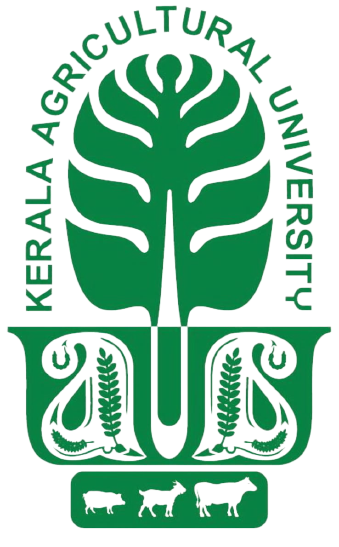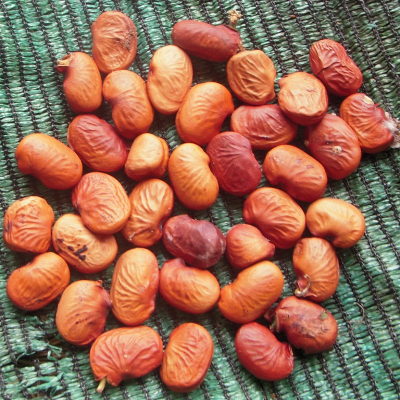Pongamia pinnata (Linn.) Pierre
Synonyms : P. glabra Vent. , Derris indica (Lam.) Bennet , Cystisus pinnatus Lam.
Family : Fabaceae
Parts Used : Root , Leaf , Seed , Bark , Flower , Oil
Vernacular Names :-
| English | : | Indian beech |
| Malayalam | : | Ungu, Pongu |
| Hindi | : | Karanja |
| Sanskrit | : | Karanj |
| Kannada | : | Hongae |
| Tamil | : | Puggam |
| Telungu | : | Kangu |
Distribution and habitat: Found throughout India
Botany: A medium sized semi-evergreen glabrous tree with a short bole and spreading crown up to 18 m or more in height.
- Bark : Greyish green or brown, very often mottled with dark brown dots, specks, lines or streaks.
- Leaves : Imparipinnately 3 compound, leaflets 5-7, ovate, acuminate or elliptic.
- Flowers : Lilac or pinkish white, fragrant, in axillary racemes.
- Fruits : Thick, woody, smooth, yellowish grey when ripe varying in size and shape, elliptic to obliquely oblong, 4-7.5 cm long and 1.7-3.2 cm broad with a short curved beak.
- Seeds: Usually 1 or 2 per pod, 1.7-2 cm long and 1.2-1.8 cm broad, elliptic or reniform, wrinkled with reddish brown, leathery testa.
Chemical constituents:
- Stem- Karanjin, pingapin, pongaflavone
- Seed cake- Glabrin, four furanoflavones, kanjone, pongaglabrone and long chain fatty acid
Uses: Root and bark are bitter, acrid, hot, anthelmintic and alexipharmic. The seeds are anthelmintic, hematinic, bitter, acrid and carminative.
- It is used for cleaning teeth, strengthening gums and treating gonorrhoea and cleaning fistulous sores.
- It is useful for treating internal bleeding, piles, beriberi, skin diseases, ulcers, flatulence, dyspepsia, cough, diabetes, inflammations, ear-ache, pectoral diseases, hydrocele, bronchitis, leucoderma, cutaneous affection, herpes, scabies, ulcers and rheumatism.
Formulations: Nagaradi tailam, Varanadi Kasayam
Propagation: Seeds or root suckers.

